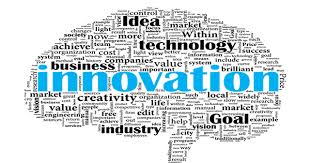
In a move set to accelerate Nigeria’s innovation economy, the European Union (EU) is stepping up its collaboration with the country to promote science, technology, and sustainable growth through new research partnerships.
At the University of Lagos’ 18th Annual Research Conference, the EU Ambassador to Nigeria and ECOWAS, Gautier Mignot, highlighted the central role of research and innovation in driving inclusive and transformative progress.
He said the EU’s partnership with Nigeria is anchored on shared priorities, empowering scientists, innovators, and young researchers to turn knowledge into practical impact across sectors such as artificial intelligence (AI), renewable energy, and health.
“Science is most efficient when it is universal, not when it bumps into borders,” Mignot said. “The European Union and its Member States are investing in research that advances the same green, digital, and inclusive transition we are pursuing in Europe, and we are proud to work with Nigeria to achieve this.”
Mignot announced that the European Commission has proposed opening negotiations with Nigeria on a Science, Technology, and Innovation (STI) Agreement, designed to create new pathways for joint research projects, academic exchange, and investments in technology infrastructure.
“This agreement will help bring our researchers, innovators, and universities even closer together. It will strengthen Nigeria’s role in the global innovation landscape and open more opportunities for young researchers and entrepreneurs”, he noted.
The Ambassador also highlighted the EU’s flagship Horizon Europe programme, a nearly €100 billion initiative funding research and innovation worldwide, noting that Nigerian researchers are eligible to participate.
“Horizon Europe is open to Nigerian researchers because the pursuit of knowledge belongs to all humankind,” Mignot said. “When science connects people, it builds a stronger, fairer, and more sustainable world.”
The Vice-Chancellor of the University of Lagos, Professor Folasade Ogunsola, commended the EU for its continued support, describing the collaboration as a milestone in Nigeria’s efforts to strengthen its research capacity and harness innovation for development.
“Africa must embrace innovation that responds to our realities,” Professor Ogunsola said. “Partnerships like this enable us to translate research into practical solutions, from sustainable energy to health and AI, that improve lives and empower communities.”



